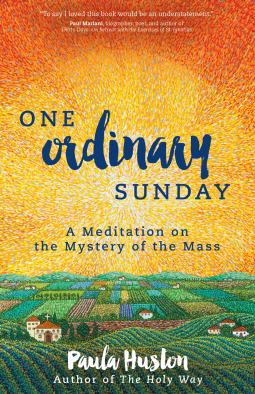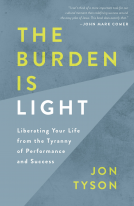
One Ordinary Sunday
A Meditation on the Mystery of the Mass
by Paula Huston
This title was previously available on NetGalley and is now archived.
Send NetGalley books directly to your Kindle or Kindle app
1
To read on a Kindle or Kindle app, please add kindle@netgalley.com as an approved email address to receive files in your Amazon account. Click here for step-by-step instructions.
2
Also find your Kindle email address within your Amazon account, and enter it here.
Pub Date Mar 11 2016 | Archive Date Jun 01 2016
Description
For Catholics, the Mass is the “source and summit of the Christian life,” as the documents of the Church put it. Yet many Catholics might confess to not understand in any depth what goes on in an “ordinary” celebration of the Eucharist. In perhaps her most compelling and original book to date, novelist and spiritual writer Paula Huston guides us through a Mass on the Fourteenth Sunday in Ordinary Time at her home parish in Arroyo Grande, California. Huston’s personal and spiritual reflections offer fresh and often unexpected insights into the profound mystery at the heart of the Catholic faith.
A natural storyteller, Huston deftly illuminates what might seem either mysterious to those unfamiliar with the Mass or overly familiar to those who have lost an appreciation of its mystery. In the Mass “we are healed and restored and spiritually fed,” she writes. “We are handed strong armor against evil. We are unified and made whole as a people and as a Church. We get a little taste of heaven.”
Readers of this book will learn
how our confession of sins at the beginning of the Mass differs from the sacrament of Penance;
what it means to say that the Mass is a sacrifice;
why the prayers of the Mass, especially the Gloria, are full of scriptural allusions;
what the purpose of the Eucharistic Prayer is; and
what happens at the consecration of bread and wine and how it is the most profound mystery and miracle of the Mass.
This is a book for all Catholics, especially those who have questions about the basic practices of their faith, who are new to the Church and still somewhat baffled about its rituals of worship, or who have left the Church behind but still feel like part of the family.
Selling Points
The author of eight previous books and a professor of creative writing, Paula Huston has been an award-winning novelist, memoirist, and essayist for more than twenty years.Huston’s 2003 book, The Holy Way, was an America magazine monthly book club selection, a Catholic Press Association award-winner, a Catholic Book Club major selection, and a bronze medal winner from Foreword magazine for Book of the Year in Religion.Huston maintains an active speaking, teaching, and retreat schedule around the country, with a strong presence in California and on the West Coast.A Note From the Publisher
Her first nonfiction project was Signatures of Grace, for which she served as coeditor and contributor; it earned a starred review from Publishers Weekly. Her book The Holy Way, which garnered another PW starred review, was a Catholic Press Association award-winner, a Catholic Book Club major selection, and a ForeWord Magazine bronze medalist for Book of the Year in Religion. Huston’s other spiritual nonfiction includes By Way of Grace, Forgiveness, Simplifying the Soul, and A Season of Mystery. A Camaldolese Benedictine Oblate, Huston is married, has four children and four grandchildren, and lives on the central California coast.
Advance Praise
"To say I loved this book would be an understatement.”
Paul Mariani
Biographer, poet, and author of Thirty Days: On Retreat with the Exercises of St. Ignatius
“I loved this book. One Ordinary Sunday will be illuminating not just for regular parishioners but for those who stand outside the Church and wonder what those Catholics are up to.”
Ron Hansen
Author of Mariette in Ecstasy
“Paula Huston does for us in the twenty-first century what Ambrose and Cyril did for Christians in the fourth. She wants us to know that an extraordinary thing happens at Mass on every ordinary Sunday. To her task of opening up the mysteries she brings a novelist’s sense of drama and descriptive power as well as a convert’s sense of discovery and wonder. She has made something beautiful for God and for us. This book will do much good.”
Mike Aquilina
Author of The Mass of the Early Christians
Paula Huston has written an unusual form of autobiography: a story of her soul, narrated while she and her family are in attendance at an ordinary Sunday Mass. This is a ‘convert story,’ but one very different from The Seven Storey Mountain of Thomas Merton or The Golden String of Bede Griffiths. She takes us through the entire Mass, and at last she comes to the final blessing of Fr. Ken, who would then be taken from her and the other members of her parish by his hospitalization and death. But the closing paragraph narrates the beginning of another ordinary Sunday, and the elderly priest, Fr. Jim, called back from retirement, greets them with the same ‘grace and peace’ that Paula and her friends in faith have enjoyed in Masses past and will continue to enjoy for time to come.
Rev. Thomas Matus, O.S.B. Cam.
Author of The Mystery of Romuald and the Five Brothers
Available Editions
| EDITION | Other Format |
| ISBN | 9781594715952 |
| PRICE | $16.95 (USD) |
Average rating from 3 members
Featured Reviews
 Amanda M, Reviewer
Amanda M, Reviewer
First of all, this book has so much in it. It isn’t really that big of a book, but One Ordinary Sunday has so much content! It is rather amazing how it all fits together. So much is covered in the context on one Sunday Mass in Ordinary Time.
The book is divided similarly to the parts of the Mass with the Liturgy of the Word and the Liturgy of the Eucharist. Paula Huston gives a brief overview of every part of the Mass. This is far more than just a book about the Mass, though. Huston takes this further when she goes into the symbolism beneath what happens in the Mass such as the vestments and the actual prayers of the Mass.
One Ordinary Sunday touches briefly on almost everything you need to know about the Catholic Church. There is talk of monastic life, the Trinity, Theotokos, the Mystical Body, the Communion of Saints, annulment, the historicity of the Mass, the Real Presence, and so much more. There is a defense of the priesthood and an explanation of why not ordaining women is a good thing.
There are connections made to heresies of the early Church, the Jewish pattern of worship, the pre-Vatican II Mass, and the existence of the Eucharistic celebration in the Acts of the Apostles. There is mention of the origins of the Creed and the Sanctus as well as RCIA (Rite of Christian Initiation of Adults, for those who don’t know).
I thoroughly enjoyed One Ordinary Sunday as we heard not only mention of necessary theological points but also Huston’s own thoughts on the Mass that day. Her own observance of the reverence shown to the Eucharist is part of what led her to the Catholic Church and now she has the reverence in abundance.
This meditation on an ordinary Sunday Mass somehow transcends the ordinary and gives a glimpse of what the Catholic Church is really made up of: ordinary individuals striving to become the saints we were created to be. This was a wonderful read and, as far as I can tell, something necessary to our current time where the reverence and the history of the Mass are being forgotten.
I received this book for free from the publisher via NetGalley for review consideration. This in no way affects my opinion of the title nor the content of this review.
 Anne P, Reviewer
Anne P, Reviewer
The premise of Paula Huston’s One Ordinary Sunday is really quite simple. She attempts to explain the power of Sunday Mass in her own life for herself and for those who do not really understand what occurs during Mass. To do so, she researches Church fathers and contemporary theologians, popes and Christian historians. She proceeds to meticulously examine each aspect (and sometimes individual lines) of the Mass, tracing them as far back as their Jewish roots. To stop here, however, would only tell half the story. As Huston sits in her pew reviewing her research, she also reveals her own inner struggles: her vague, gray feeling of grief over the deaths of those she has lost, her worries for her grandchildren’s futures, and her discomfort with aspects of the Mass because of her Protestant upbringing. Indeed, in one poignant quote, Huston says, “Do I understand all of it? No. Do I believe it? I am trying.” Therefore, the beauty of One Ordinary Sunday is how it reveals the coming together of human beings, with their problems, doubts, and sorrows, to be transformed by a 2,000-year-old liturgy which is suspended in time, pulsing, and occurring around the world on any given Sunday. In capturing that coming together of human frailty with ancient liturgy, Huston encapsulates the power of Sunday Mass for those who may feel disconnected from it..







